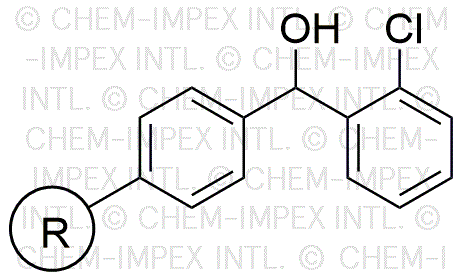2-Chlorodiphenylmethanol resin is widely utilized in research focused on:
- Chromatography: This resin is effective in separating and purifying compounds in various mixtures, making it invaluable in analytical chemistry and biochemistry labs.
- Drug Delivery Systems: Its unique properties allow for the development of controlled release formulations, enhancing the efficacy of pharmaceuticals by ensuring a steady release of active ingredients.
- Environmental Remediation: The resin can be used to adsorb pollutants from water and soil, providing a practical solution for cleaning up contaminated sites.
- Polymer Chemistry: It serves as a building block in synthesizing advanced materials, contributing to innovations in coatings and adhesives with improved durability and performance.
- Research and Development: The resin is a key component in various experimental setups, aiding researchers in studying reaction mechanisms and material properties.
General Information
Properties
Safety and Regulations
Applications
2-Chlorodiphenylmethanol resin is widely utilized in research focused on:
- Chromatography: This resin is effective in separating and purifying compounds in various mixtures, making it invaluable in analytical chemistry and biochemistry labs.
- Drug Delivery Systems: Its unique properties allow for the development of controlled release formulations, enhancing the efficacy of pharmaceuticals by ensuring a steady release of active ingredients.
- Environmental Remediation: The resin can be used to adsorb pollutants from water and soil, providing a practical solution for cleaning up contaminated sites.
- Polymer Chemistry: It serves as a building block in synthesizing advanced materials, contributing to innovations in coatings and adhesives with improved durability and performance.
- Research and Development: The resin is a key component in various experimental setups, aiding researchers in studying reaction mechanisms and material properties.
Documents
Safety Data Sheets (SDS)
The SDS provides comprehensive safety information on handling, storage, and disposal of the product.
Product Specification (PS)
The PS provides a comprehensive breakdown of the product’s properties, including chemical composition, physical state, purity, and storage requirements. It also details acceptable quality ranges and the product's intended applications.
Certificates of Analysis (COA)
Search for Certificates of Analysis (COA) by entering the products Lot Number. Lot and Batch Numbers can be found on a product’s label following the words ‘Lot’ or ‘Batch’.
*Catalog Number
*Lot Number
Certificates Of Origin (COO)
This COO confirms the country where the product was manufactured, and also details the materials and components used in it and whether it is derived from natural, synthetic, or other specific sources. This certificate may be required for customs, trade, and regulatory compliance.
*Catalog Number
*Lot Number
Safety Data Sheets (SDS)
The SDS provides comprehensive safety information on handling, storage, and disposal of the product.
DownloadProduct Specification (PS)
The PS provides a comprehensive breakdown of the product’s properties, including chemical composition, physical state, purity, and storage requirements. It also details acceptable quality ranges and the product's intended applications.
DownloadCertificates of Analysis (COA)
Search for Certificates of Analysis (COA) by entering the products Lot Number. Lot and Batch Numbers can be found on a product’s label following the words ‘Lot’ or ‘Batch’.
*Catalog Number
*Lot Number
Certificates Of Origin (COO)
This COO confirms the country where the product was manufactured, and also details the materials and components used in it and whether it is derived from natural, synthetic, or other specific sources. This certificate may be required for customs, trade, and regulatory compliance.


